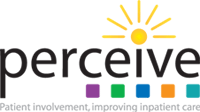PERCEIVE - Patient Involvement in Improving the Evidence Base on Inpatient Care
What is PERCEIVE?
PERCEIVE is a research programme which looks at the therapeutic environment on inpatient psychiatric wards. This programme emphasises service user views and also takes feedback from staff. PERCEIVE creates new questionnaires so the ward environment can be assessed. PERCEIVE also compares ward admission systems and enables staff teams to perform therapeutic interventions on the wards.
ECLIPSE - Building Resilience and Recovery through Enhancing Cognition
and quality of Life In the early PSychosEs
Cognitive problems in people with schizophrenia predict functional recovery even with the best possible rehabilitation opportunities and optimal medication. However, one new psychological treatment known as cognitive remediation (CRT) can improve cognitive and functional recovery – such as social relationships and the opportunity to go to work or take part in further education. The ideal time to provide CRT is in Early Intervention Services (EIS) as we know that it is more effective for younger people and may have larger effects on functioning if we intervene at the earliest opportunity.
Our plan is to incorporate service user views of therapy implementation, develop a training programme and investigating different methods of CRT implementation to guide the UK-wide implementation. Different implementation models varying therapist input will be evaluated from different perspectives as suggested by the best practice in implementation science. We will investigate: (i) the service user perspective through effects on service user defined personal goals as well as direct cognitive and functioning gains. We will detect therapy satisfaction and the method of provision and the most sustainable therapy; (ii) the staff perspectives on the different implementation methods defined as the level of training, commitment and resource required from staff as well as organisational facilitators and barriers, and finally (iii) the provider perspective in terms of the costs and cost-effectiveness of the different methods of providing therapy. This will allow us to balance staff and service user perspectives on different intervention methods. Our research team has experts in all the different perspectives – service user researchers, staff researchers as well as health economists, statisticians, service managers, organisational behaviour specialists and practitioners. We also have the experience of implementing treatments in the NHS particularly in Early Intervention Services.
In order to produce a comprehensive plan for the best implementation method we will also need to know about a number of different factors. For specific individual tailoring of therapy we need to understand which of several factors known to affect outcome are important for first episode patients. For introduction into routine practice organisational factors, such as staff resources and background treatments, might affect successful CRT implementation. All this information will allow: (i) policy makers to plan for this treatment; (ii) individual teams to understand what is required before and during implementation; and (iii) service users to receive the best individualised care to improve their recovery potential.
Service User Research Enterprise (SURE)
The Service User Research Enterprise (SURE) undertakes research that tests the effectiveness of services and treatments from the perspective of people with mental health problems and their carers. SURE aims to involve service users in a collaborative way in the whole research process: from design to data collection, through to data analysis and dissemination of results. Til Wykes is the founder and was its first Director.
Scientific Advisory Boards
Psyberguide - https://psyberguide.org/
Money and Mental Health Policy Unit - https://www.moneyandmentalhealth.org/
Cibersam - https://www.cibersam.es/en
DZPG - DZPG.org

